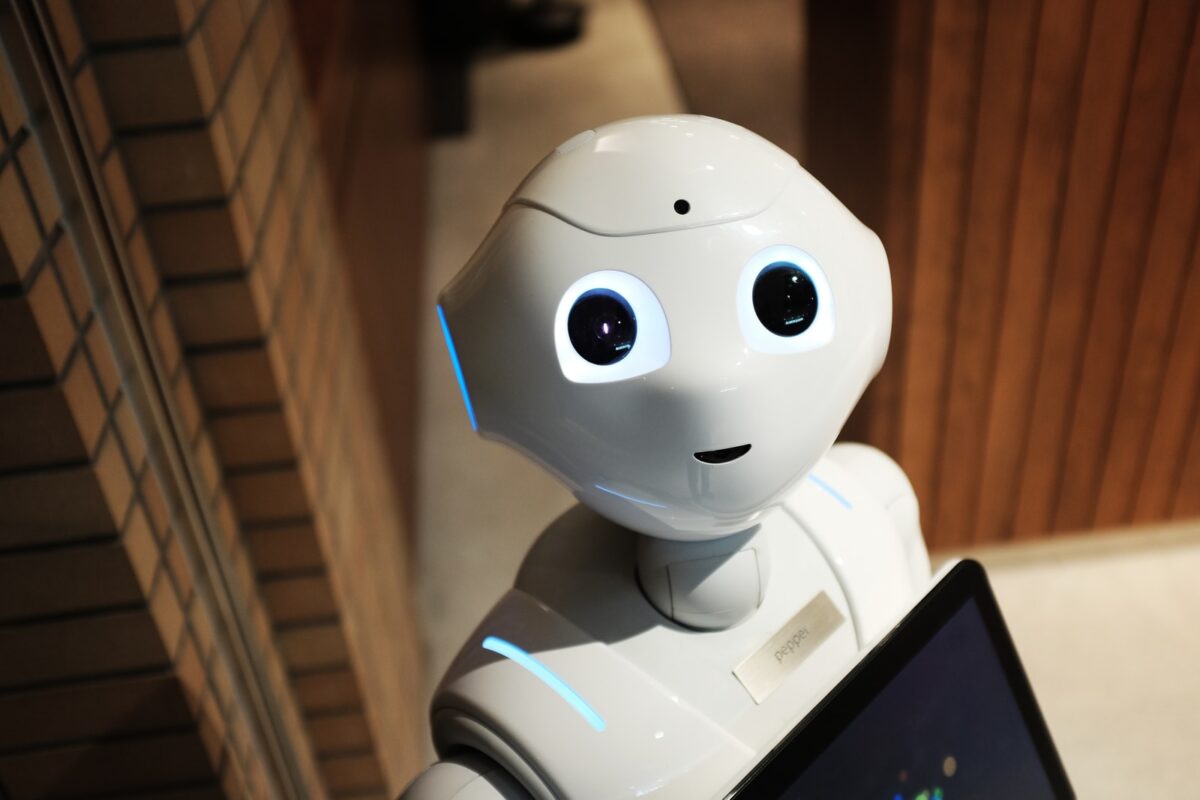Alejo Jose G. Sison
mercatornet.com
Alejo José G. Sison teaches ethics at the University of Navarre and Georgetown. His research focuses on issues at the juncture of ethics, economics and politics from the perspective of the virtues and the common good. He blogs at Work, Virtues, and Flourishing.
Barcelona has just rolled out a pilot program where carebots will be deployed to assist in the homes of the elderly living alone. The seniors will be closely monitored in their overall wellbeing before, during, and after the carebots’ stay, and findings will be used to fine-tune the carebots’ programming and use.
Around 90,000 elderly people live by themselves in Barcelona. Yet there is room for only 13,000 in publicly-owned or managed care facilities, with a waiting list of more than 6,000. Users of remote-assistance services have crossed the 100,000 threshold and about 40,000 homes require regular visits from welfare workers. Although the majority of senior citizens prefer to live in their own homes, city services are already overwhelmed.
Carebots, which are a combination of a variety of state of the art technologies, are a godsend in several ways. They are excellent communication centers through which the elderly can keep in touch with friends, family, and medical or emergency assistance personnel through video calls. They could stream the elderly person’s favorite movies and shows; run their music playlists; read them the papers, or even guide them through their regular fitness routines.
They’re great for early detection and management of a wide range of conditions when equipped with medical diagnostic sensors and health apps. Fitted with mechanical arms or an exoskeleton, they could be a trusty mobility aid, especially for the unstable or disoriented. They can even engage in what passes for an intelligent conversation, often speaking with a pleasant and empathic female voice. Just observing them could be very entertaining. They are often cute, even cuddly. The perfect toy for grown-ups!
Yet there are serious potential downsides as well when we allow carebots to substitute or even take over human care-giving. First and foremost is the risk of unhealthy emotional attachments when we depend on carebots to keep the elderly company. After all, carebots are always there for the seniors 24-7, obeying whatever they’re told, and never complaining.
This is quite similar to the use of smartphones, tablets, and other electronic gadgets as child-minders. They may give parents and adults a breather; but then the kids get addicted and spend too much time on these devices, failing to socialise or to get some exercise, becoming prone to depression.
Although meeting up with friends or going to the gym isn’t exactly top priority for the elderly, especially in these times of Covid, something’s both wrong and false about relying on a machine to satisfy their social, emotional, and higher-order needs. It’s dehumanising, if not outright inhuman (so it’s not just a technical problem of how “smart” and functional carebots can become).
As they grow up, we teach kids the difference between things, living things, and fellow humans, so they learn to treat individuals belonging to each of these groups appropriately. We may at first laugh or find it funny when small children start talking to Alexa or Siri; but we’d have reason to worry if such behaviour were to persist, because they’re supposed to get over it sooner than later.
Why, then, should we be complacent upon hearing Grandpa engaging in a spirited conversation with the carebot, just because he’s developing Alzheimer’s? Has it become ok to infantilise him? Does he now deserve anything less than human?
It would be a mistake to think carebots are a remedy to the loneliness and isolation many of our seniors suffer. Let’s not fall into this collective delusion. There’s no substitute for the warmth only other human beings can offer for these ills. Pets such as dogs can help as they are alive and share some of our emotions as higher-order mammals. But neither can they take our place.
As for carebots, despite the name, they don’t really care about us. It’s not because they don’t want to; they just can’t. To care is to experience certain feelings and emotions towards others; to want and desire what’s good for them. Generally we know what that is because we want and desire the same thing for ourselves. But to be capable of this, one needs to be alive and embodied, something which the carebot is not. No programming skill or robotic technology can solve that.
The carebot is not a tin man and there is no wizard of Oz.
Barcelona city officials should take note.
Republished with permission from Alejo José G. Sison’s blog, Work, Virtues, and Flourishing.
Please share this article so that others can discover The BFD.

